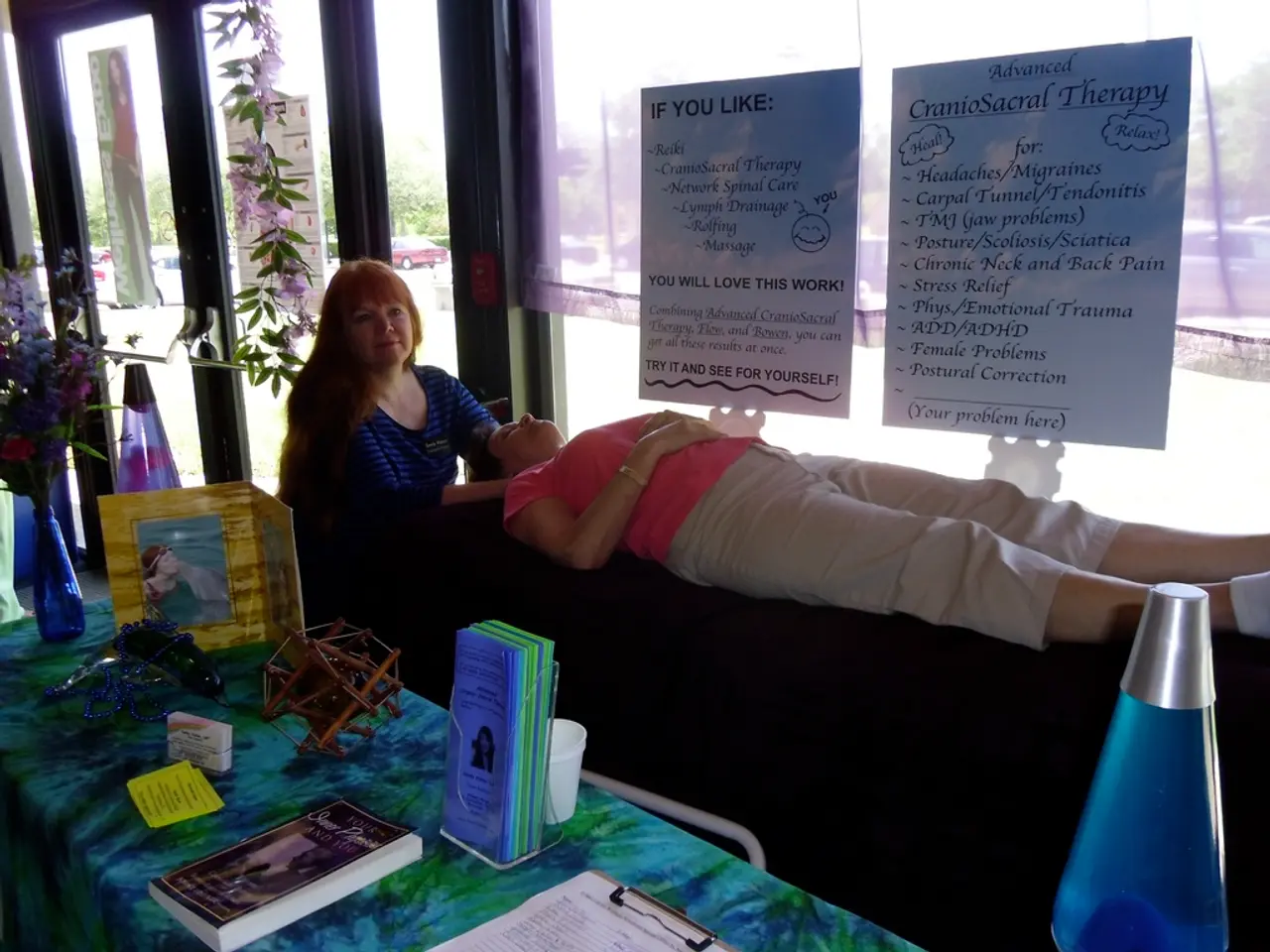Nasal Soreness: Roots and Remedies
Sores inside the nose can be a cause for concern, and understanding their origins is essential for appropriate treatment. This article explores common and less common causes of nasal sores, as well as treatment approaches.
Common Causes of Nasal Sores
Sores inside the nose may indicate underlying health issues, such as viral infections, sinus infections, allergic rhinitis, nasal polyps, or exposure to environmental irritants.
Viral Infections
Viral infections, particularly herpes simplex virus type 1 (HSV-1), can cause painful cold sores or blisters inside or under the nose. These cold sores are contagious and often triggered by immune system weakness.
Sinus Infections or Sinusitis
Sinus infections or sinusitis involve inflammation of the nasal lining due to viral or bacterial infection. This can lead to blocked drainage and irritation inside the nasal cavity.
Allergic Rhinitis
Allergic rhinitis is an allergic reaction causing nasal inflammation that may contribute to irritation or sores inside the nose, especially with ongoing exposure to allergens like pollen, dust mites, or pet dander.
Nasal Polyps and Structural Abnormalities
Nasal polyps or other structural abnormalities, such as a deviated septum, can cause chronic irritation or secondary infection, potentially leading to sores or ulcerations inside the nose.
Environmental Irritants
Environmental irritants like tobacco smoke, pollution, or chemicals can inflame the nasal mucosa and contribute to sores inside the nose.
Less common but important causes include fungal infections or immune deficiency states that impede normal healing and increase susceptibility to infections.
Treatment Approaches
Treatment approaches vary depending on the cause. For cold sores caused by HSV-1, topical antiviral creams may reduce healing time and symptoms, though they do not eliminate the virus. Prescription antiviral medications like acyclovir, famciclovir, or valacyclovir may be used for severe or recurrent cases, especially in individuals with weakened immune systems.
For sinusitis or bacterial infections, antibiotics (when bacterial) combined with nasal corticosteroid sprays (e.g., Flonase, Nasonex) can control infection and reduce inflammation.
Allergic rhinitis treatment includes avoiding allergens, antihistamines, nasal corticosteroids, and immunotherapy to reduce ongoing inflammation.
For nasal polyps causing sores or obstruction, treatment ranges from corticosteroids (oral or nasal sprays) to surgery, with possible adjunct immunotherapy for underlying allergies.
Avoidance or reduction of exposure to environmental irritants helps prevent mucosal damage and promotes healing.
If sores inside the nose are persistent, recurrent, worsening, or accompanied by other symptoms such as fever, difficulty breathing, or severe pain, it is important to seek medical evaluation as these could indicate more serious infections or systemic issues.
Rare Causes and Important Considerations
In rare cases, a sore inside the nose that does not go away may stem from paranasal sinus and nasal cavity cancer. Other health issues that may require a person to consult a doctor if their nasal sores last longer than a few days include TB, lupus, or cancer. Lupus, an autoimmune condition, can cause sores or ulcers in the mouth and nose.
Nasal vestibulitis can be a bacterial infection that can lead to nasal sores, pain, swelling, and tenderness. Lupus is a long-term condition with no cure, and symptoms tend to come and go over time. Doctors may recommend topical treatment options for acne, such as topical retinoids or azelaic acid. Tuberculosis can cause nasal sores or ulcers, but nasal TB is rare.
In summary, nose sores may result from infections (viral, bacterial, fungal), allergies, structural problems, or irritants. Treatment is targeted at the specific cause: antivirals for herpes, antibiotics and steroids for sinusitis, and allergy management for allergic rhinitis. Persistent or severe cases warrant specialist assessment.
- Viral infections, such as herpes simplex virus type 1 (HSV-1), can result in painful cold sores inside the nose.
- Sinus infections or sinusitis lead to inflammation of the nasal lining, which might cause irritation inside the nasal cavity.
- Allergic rhinitis, an allergic reaction causing nasal inflammation, can contribute to sores inside the nose, especially with ongoing exposure to allergens.
- Nasal polyps or other structural abnormalities can cause chronic irritation or secondary infection, potentially leading to sores or ulcerations inside the nose.
- Environmental irritants like tobacco smoke, pollution, or chemicals can inflame the nasal mucosa and contribute to sores inside the nose.
- In rare cases, a sore inside the nose that doesn't heal could indicate paranasal sinus and nasal cavity cancer or tuberculosis.
- Lupus, an autoimmune condition, can cause sores or ulcers in the mouth and nose.
- Nasal vestibulitis, a bacterial infection, can lead to nasal sores, pain, swelling, and tenderness.
- Lupus is a long-term condition with no cure, and symptoms tend to come and go over time. For acne, doctors may recommend topical treatment options like topical retinoids or azelaic acid.
- If sores inside the nose are persistent, recurrent, worsening, or accompanied by other symptoms such as fever, difficulty breathing, or severe pain, it is crucial to seek medical evaluation as these could indicate more serious infections or systemic issues.




